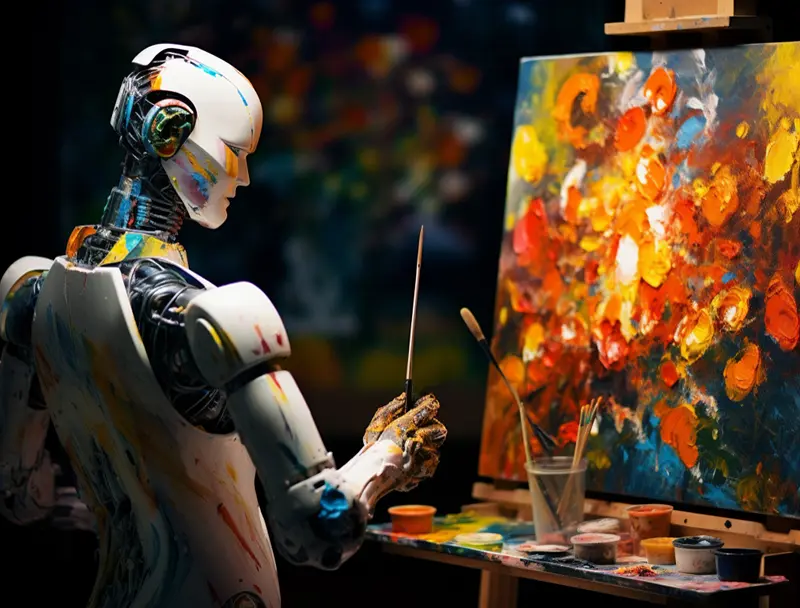How AI-Driven Converters Are Simplifying Digital Creation
Introduction to the Impact of AI on Digital Creation
Artificial Intelligence (AI) is no longer a futuristic concept—it’s here, and it’s revolutionizing how we create, manage, and optimize digital content. From automating mundane tasks to providing insights that drive strategy, AI-powered tools are becoming indispensable. But what exactly are AI helpers, and how can they simplify your digital creation process?
Understanding AI-Driven Converters
What They Are
AI-based converters are advanced software apps that make use of artificial intelligence in converting data from one or more formats to one or many other formats (s). AI solvers encompass text-to-speech, image-to-text, video to a variety of formats, and more and are meant to optimize the process of creating and sharing such content.
How They Work
It uses machine learning algorithms to identify and process data in these tools. For example, an image or a video can be analyzed; specific frames can be converted to GIFs or still picture images. Thus, the AI gets further improved with each conversion with better understanding and higher efficiency.
Benefits for Digital Marketers in Content Creation and Optimization
Streamlining Content Production
For digital marketers, time is money. AI converters can significantly reduce the time spent on repetitive tasks, allowing marketers to focus on strategy and creativity. Imagine converting a long blog post into a series of engaging social media snippets within minutes.
Enhancing SEO
AI tools can optimize content for search engines by analyzing keywords, improving readability, and suggesting relevant tags. This ensures that your content not only reaches your target audience but also ranks higher on search engine results pages (SERPs).
Personalizing Content
Personalization is key in today's marketing landscape. AI converters can tailor content to specific audience segments by analyzing user data, preferences, and behavior. This results in more engaging and relevant content that resonates with your audience.
Real-World Use Cases for Content Creators
Video Transcriptions and Subtitles
Content creators most times are faced with the challenges of processing massive pieces of video content. The use of AI-powered converters can transcribe videos and come up with accurate subtitles for any video hence making it easier for users to understand them and also enhancing SEO for the content.
Image to Text Conversion
To bloggers or writers, it’s useful as AI tools can transcribe images that might contain some text. This is especially applied in converting handwritten notes or ripping text off an infograph.
Audio to Text
Podcasters and vloggers are examples of how AI converters that convert audio to text will be of benefit. It also helps in writing documents and is useful in recycling blogs, articles, and social media handles among others.
The Future of AI in Digital Creation
More Intelligent and Adaptive
AI technology is continuously evolving. Future AI-driven converters will be more intelligent, and capable of understanding context, tone, and nuance, making conversions even more accurate and human-like.
Integration Across Platforms
We can expect seamless integration of AI converters across various digital platforms, making it easier for small business owners to manage and optimize their content without needing extensive technical knowledge.
Implications for Small Business Owners
For small business owners, AI offers a competitive edge by automating tasks that would otherwise require significant time and resources. Whether it’s creating marketing materials, managing customer interactions, optimizing supply chain processes, or using a Math Solver AI Homework Helper, AI is set to become an integral part of business operations.
Tips for Choosing the Right AI-Driven Converter
Assess Your Needs
Determine the specific operations for which the implementation of an AI converter is necessary, such as text-to-speech, image-to-text, or video-to-GIF. Understanding your needs will help you identify the right tool.
Evaluate Features
Some of the things to consider include accuracy, the pace at which the tool works, how easy it is to use, and whether it is compatible with other tools you have been using. Some of the advanced converters available in the market include other functionalities such as translation from one language to another and analysis of data.
Read Reviews and Testimonials
Under the reviews and testimonials on the product page, users share their experiences and you can read them. Low-rated tools and those that are criticized tend to be less effective as compared to their highly-rated counterparts.
Consider Cost
Some of the AI converters are open source while others are charged on a subscription basis. Compare the returns with the costs to determine the merits of investing in hotels.
Test the Tool
Generally, when it comes to AI converters, most of them contain a trial version of the software. Take advantage of this by practicing with it to know whether it can deliver what is being claimed by the developers before subscribing to any of the paid plans.
Conclusion
AI-driven converters are not just a trend—they're a powerful tool for enhancing digital creativity and efficiency. By understanding their potential and integrating them into your workflow, you can stay ahead in the competitive digital landscape. Whether you’re a digital marketer, content creator, or small business owner, AI offers solutions that simplify processes, optimize content, and drive engagement.

